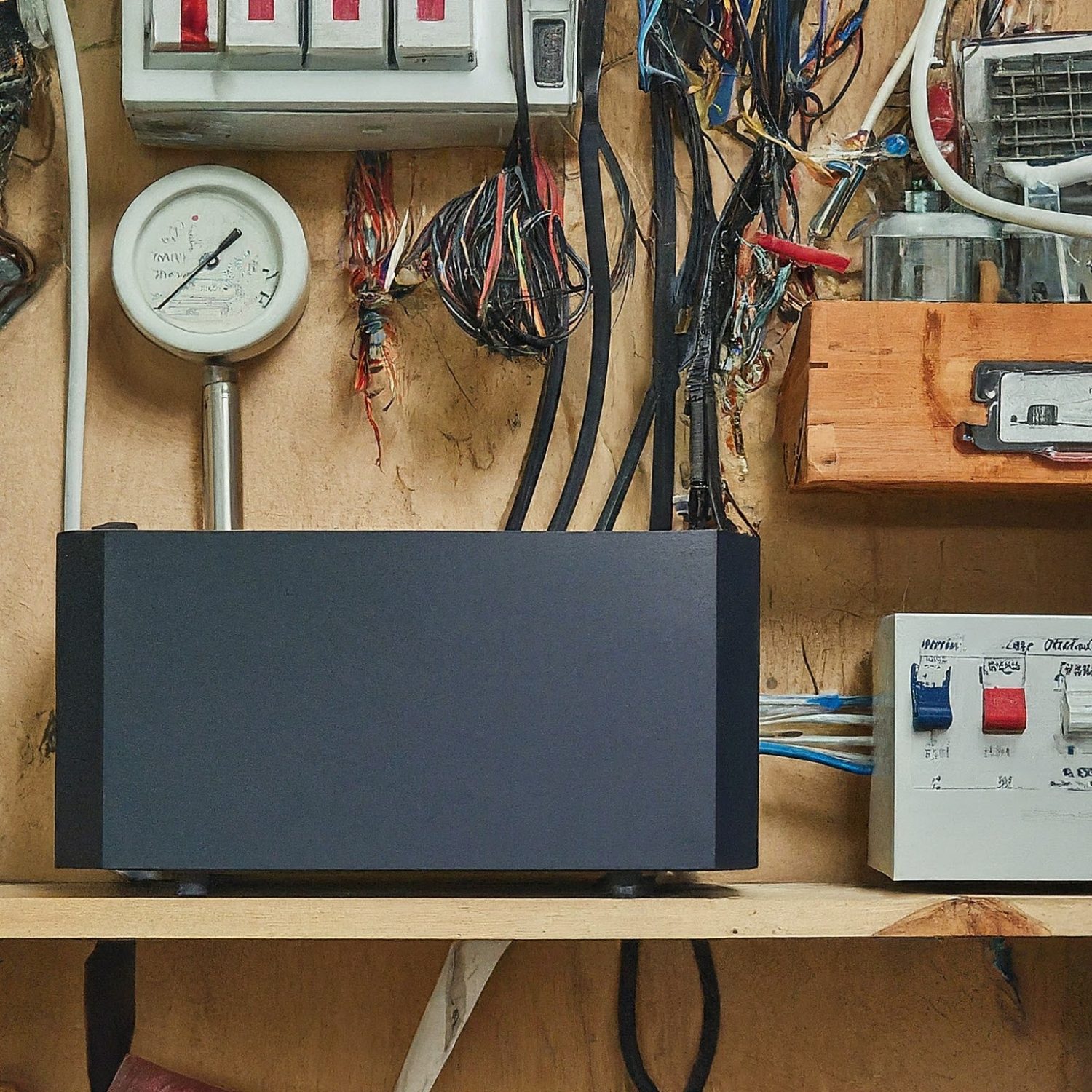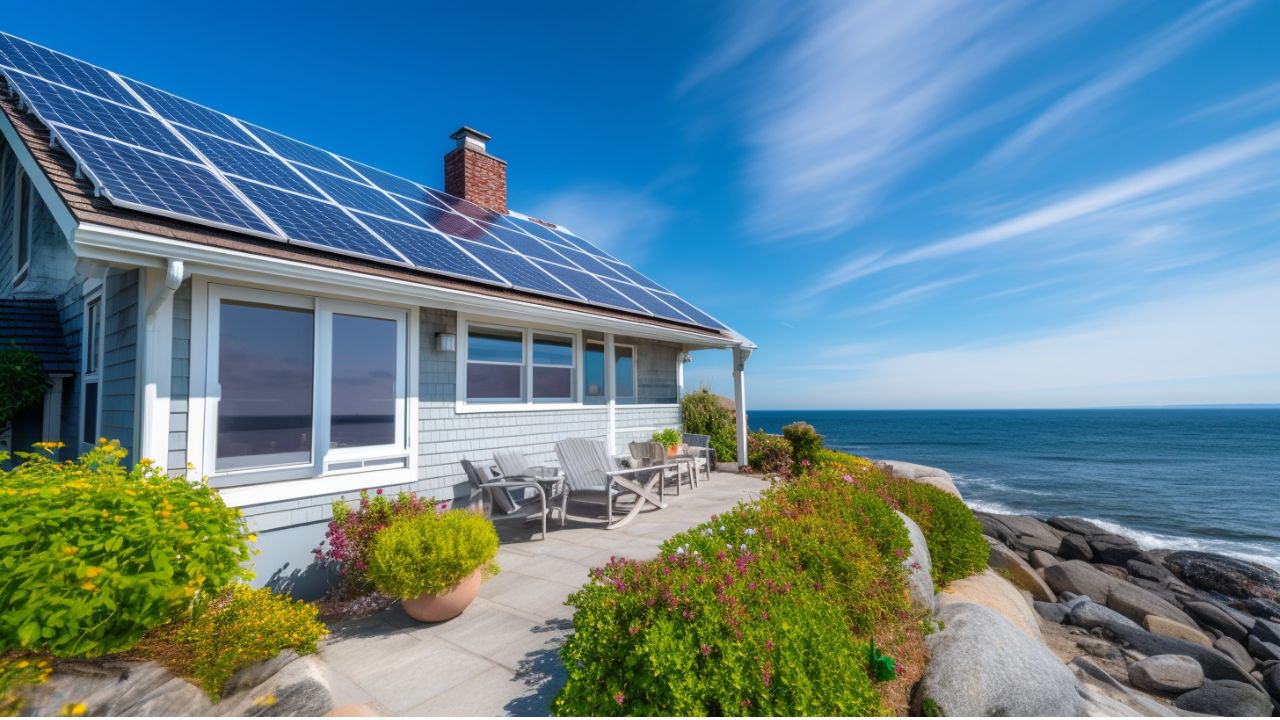
Introduction to Solar Inverters
Solar inverters play a crucial role in solar energy systems by converting the direct current (DC) electricity generated by solar panels into alternating current (AC) electricity that can be used to power homes or fed back into the grid. They are essential components in both grid-tied and off-grid solar systems, ensuring efficient and safe utilization of solar power. When choosing a solar inverter for your system, it is important to consider factors such as size, type, and compatibility with your solar panel setup. For expert advice and assistance with solar batteries and inverters, contact Syntek Solar at (703)-282-0395.
Overview of solar inverters and their importance in solar energy systems
Solar inverters are crucial components in solar energy systems as they convert the direct current (DC) electricity generated by solar panels into alternating current (AC) electricity that can be used to power homes or fed back into the grid. They ensure efficient and safe utilization of solar power. Choosing the right solar inverter is essential for maximizing the output of your solar panel system. For expert advice and assistance with solar inverters, contact Syntek Solar at 703-282-0395.
Types of solar inverters: string inverters and microinverters
When it comes to solar inverters, there are two main types to consider: string inverters and microinverters.
String inverters are the most common type and are connected to multiple solar panels in a series, forming a “string.” They are cost-effective and efficient for larger installations.
On the other hand, microinverters are installed on each individual solar panel, allowing for maximum efficiency and flexibility. While they can be more expensive upfront, microinverters offer benefits such as panel-level monitoring and improved performance in shaded conditions.
Both string inverters and microinverters have their advantages and appropriate applications, so it’s important to consult with a professional, like Syntek Solar at 703-282-0395, to determine which type will work best for your specific solar energy system.
How Solar Inverters Work
Solar inverters play a crucial role in converting the direct current (DC) electricity produced by solar panels into alternating current (AC) electricity suitable for use in homes or for feeding back into the grid. They achieve this conversion through key components such as maximum power point tracking (MPPT), which maximizes energy harvest, and voltage and waveform regulation. Solar inverters are essential for harnessing the full potential of solar power systems. For more information on how solar inverters work, contact Syntek Solar at 703-282-0395.
Conversion of DC electricity from solar panels to AC electricity for home or grid use
Solar inverters are essential for converting the direct current (DC) electricity produced by solar panels into alternating current (AC) electricity suitable for use in homes or for feeding back into the grid. This conversion process is crucial because most residential and commercial electrical systems operate on AC power. Solar inverters ensure that the energy harvested from the sun can be efficiently used to power appliances, electronics, and other devices in homes or be sent back to the grid for credit. For more information on this process and how it benefits solar energy systems, contact Syntek Solar at 703-282-0395.

Key components of a solar inverter: MPPT, voltage, and waveform
Solar inverters have three essential components that play a crucial role in their operation. The Maximum Power Point Tracking (MPPT) technology ensures that the solar panels operate at their maximum efficiency. The voltage component of the inverter converts the low-voltage DC electricity from the panels into higher-voltage AC electricity suitable for home or grid use. Lastly, the waveform component ensures that the AC electricity produced by the inverter matches the waveform of the utility grid. These key components work together to facilitate efficient and reliable conversion of solar power. For more information on solar inverters and their components, contact Syntek Solar at 703-282-0395.
Different Types of Solar Inverters
There are two main types of solar inverters: string inverters and microinverters. String inverters are commonly used in larger solar energy systems, where multiple solar panels are connected in a series. They are cost-effective and have high efficiency. Microinverters, on the other hand, are installed on each individual solar panel, allowing for better performance monitoring and optimization. While they are more expensive, they offer greater flexibility and can improve overall system performance.
String inverters: working principle and applications
String inverters, also known as centralized inverters, are the most commonly used type of solar inverters in large-scale solar energy systems. They work by converting the direct current (DC) electricity generated by multiple solar panels connected in a series into alternating current (AC) electricity. This AC electricity can then be used to power homes or fed back into the electrical grid. String inverters are cost-effective and widely available, making them a popular choice for commercial and utility-scale solar installations. For more information on string inverters and their applications, contact Syntek Solar at 703-282-0395.
Microinverters: advantages and disadvantages for residential solar systems
Microinverters offer several advantages for residential solar systems. They provide maximum power output from each individual solar panel, allowing for better performance and efficiency. Additionally, microinverters allow for better monitoring and fault detection at the panel level. However, they can be more expensive compared to string inverters and may require additional installation time and expertise. It is important to carefully consider the specific needs of your residential solar system before choosing between microinverters and string inverters. For more information on microinverters, contact Syntek Solar at 703-282-0395.
Selecting the Right Solar Inverter
When selecting a solar inverter for your solar energy system, there are several factors to consider. It is important to match the inverter size to the capacity of your solar panel system. Additionally, you should carefully evaluate the type of inverter that best suits your needs, whether it be a grid-tied inverter, off-grid inverter, or solar battery inverter. For expert guidance on selecting the right solar inverter, contact Syntek Solar at 703-282-0395.
Factors to consider when choosing a solar inverter for your solar energy system
When selecting a solar inverter for your solar energy system, it is important to consider several factors. One crucial factor is the capacity of your solar panel system and ensuring that the inverter size matches it appropriately. Additionally, you should evaluate the type of inverter that best suits your needs, whether it be a grid-tied inverter, off-grid inverter, or solar battery inverter. For expert guidance on selecting the right solar inverter, contact Syntek Solar at 703-282-0395.
Matching the inverter size to the solar panel system capacity
Matching the inverter size to the solar panel system capacity is crucial for optimal performance. It is important to choose an inverter that can handle the maximum DC power output of your solar panels. Oversizing or undersizing the inverter can result in inefficiencies and reduced energy production. It is recommended to consult with a professional, such as Syntek Solar at 703-282-0395, to ensure proper matching of the inverter size to your solar panel system capacity.
Installation and Maintenance of Solar Inverters
Proper installation and maintenance of solar inverters are essential for optimal performance. During installation, it is important to follow the manufacturer’s guidelines and ensure that the inverter is placed in a well-ventilated area away from direct sunlight. Routine maintenance includes cleaning the inverter regularly and checking for any loose connections. If any issues arise, it is advisable to contact a professional, such as Syntek Solar at 703-282-0395, for troubleshooting and repairs to ensure maximum efficiency of your solar energy system.
Proper installation guidelines for solar inverters
Proper installation of solar inverters is crucial for optimal performance. It is essential to follow the manufacturer’s guidelines and ensure the inverter is placed in a well-ventilated area, away from direct sunlight. The inverter should be securely mounted and all electrical connections should be properly tightened. For accurate monitoring, it is important to connect the inverter to a stable internet connection and configure it according to the system specifications. To ensure safety and efficiency, professional installation by Syntek Solar at 703-282-0395 is recommended.
Routine maintenance and troubleshooting tips for optimal performance
Routine maintenance is essential to ensure the optimal performance of solar inverters. Regularly inspecting and cleaning the inverter, along with checking for loose connections, is crucial. Monitoring the system’s performance and keeping track of any error messages or alarms can help identify potential issues. If troubleshooting becomes necessary, contacting a professional like Syntek Solar at 703-282-0395 is recommended for prompt assistance.
Conclusion
In conclusion, solar inverters play a crucial role in converting DC electricity generated by solar panels into usable AC electricity. They are essential components of a solar energy system, whether it’s connected to the grid or off-grid. By selecting the right inverter and following proper installation and maintenance practices, homeowners can maximize the performance and efficiency of their solar power systems. For more information and assistance with solar inverters, contact Syntek Solar at 703-282-0395.
Benefits of investing in quality solar inverters for your solar energy system
Investing in quality solar inverters for your solar energy system offers several benefits. Firstly, it ensures maximum efficiency and performance of your solar power system, allowing you to generate more electricity from your panels. Additionally, high-quality inverters have advanced features like MPPT technology, which optimize power output. Lastly, they offer durability and reliability, ensuring long-term savings and peace of mind. To learn more about the benefits of quality solar inverters, contact Syntek Solar at 703-282-0395.
Common misconceptions and FAQs about solar inverters
There are a few common misconceptions about solar inverters. One misconception is that they are not necessary for grid-tied systems, when in fact they are crucial for converting DC power to AC power. Another misconception is that microinverters are always better than string inverters, when the choice depends on the specific needs of the system. FAQs about solar inverters include questions about inverter warranties, sizing requirements, and compatibility with battery storage. For more information and answers to your specific questions, contact Syntek Solar at 703-282-0395.
